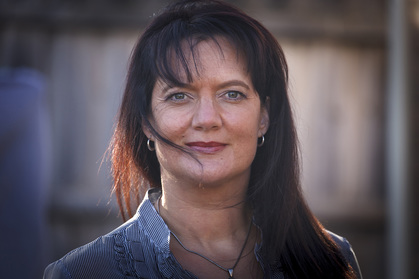
Rachel Jeffery is an Accredited Practising Dietitian* (APD) with over 25 years of experience. Rachel completed her studies at Deakin University, Victoria and Flinders University, South Australia. She has worked in the fields of clinical and community nutrition.
Rachel specialises in the areas of Irritable Bowel Syndrome (IBS), Women’s Health and Fertility including Endometriosis, and Weight Management. She will provide you with individual and personalised support, to explain the science and put it into practical nutrition goals and includes everyday foods. Rachel’s aim is to help you reach your ultimate health and wellbeing through food.
Dietitians such as Rachel have become well known faces on our television screens. She began her work in the media with the first of 6 television advertisements filmed for the Kraft Kitchens campaign. She presented the Nutrition segment on Channel Seven’s series for IGA called Food4Life, in 2007 and was the Ambassador for IGA Supermarket's Food4Life Program.
Rachel offers services in both Geelong and Bannockburn; and is part of the Nutrition Plus Dietitians Group specialising in fertility, pregnancy and women’s health. Rachel is passionate about educating people and supporting them, through their nutrition journey.
Rachel looks forward to meeting you very soon!
* Distinction between dietitian and nutritionist
In Australia there is a distinction made between dietitians and other occupations in the nutrition and food science field, including that of nutritionist.
The key difference between a dietitian and a nutritionist is that, in addition to or as part of their qualification in human nutrition, a dietitian has undertaken a course of study that included substantial theory and supervised and assessed professional practice in clinical nutrition, medical nutrition therapy and food service management.
Therefore, in Australia, all dietitians are considered to be nutritionists however, nutritionists without a dietetics qualification cannot take on the specialised role of a dietitian.
There is no industry specific assessing authority that assesses the qualifications of nutritionists who are not dietitians.
To ensure you are receiving expert nutrition advice, always enquire about the qualifications of a dietitian or nutritionist and look for the Accredited Practising Dietitian (APD) credential.
What is an APD?
Accredited Practising Dietitians (APDs) have the qualifications and skills to provide expert nutrition and dietary advice. APDs are university-qualified professionals that undertake ongoing training and education programs to ensure that they are your most up-to-date and credible source of nutrition information.
APDs are trained to assess nutritional needs. They also assist people to manage health conditions and diseases using food as Medical Nutrition Therapy. APDs help treat a wide range of conditions including diabetes, heart disease, cancers, gastrointestinal diseases, food allergies, food intolerance’s, disordered eating as well as overweight and obesity.
APDs can help with everyday healthy eating by translating scientific health and nutrition information into practical advice.
To ensure you are receiving expert nutrition advice, always enquire about the qualifications of a dietitian or nutritionist and look for the Accredited Practising Dietitian (APD) credential.
Source : courtesy of the Dietitians Association of Australia
Rachel specialises in the areas of Irritable Bowel Syndrome (IBS), Women’s Health and Fertility including Endometriosis, and Weight Management. She will provide you with individual and personalised support, to explain the science and put it into practical nutrition goals and includes everyday foods. Rachel’s aim is to help you reach your ultimate health and wellbeing through food.
Dietitians such as Rachel have become well known faces on our television screens. She began her work in the media with the first of 6 television advertisements filmed for the Kraft Kitchens campaign. She presented the Nutrition segment on Channel Seven’s series for IGA called Food4Life, in 2007 and was the Ambassador for IGA Supermarket's Food4Life Program.
Rachel offers services in both Geelong and Bannockburn; and is part of the Nutrition Plus Dietitians Group specialising in fertility, pregnancy and women’s health. Rachel is passionate about educating people and supporting them, through their nutrition journey.
Rachel looks forward to meeting you very soon!
* Distinction between dietitian and nutritionist
In Australia there is a distinction made between dietitians and other occupations in the nutrition and food science field, including that of nutritionist.
The key difference between a dietitian and a nutritionist is that, in addition to or as part of their qualification in human nutrition, a dietitian has undertaken a course of study that included substantial theory and supervised and assessed professional practice in clinical nutrition, medical nutrition therapy and food service management.
Therefore, in Australia, all dietitians are considered to be nutritionists however, nutritionists without a dietetics qualification cannot take on the specialised role of a dietitian.
There is no industry specific assessing authority that assesses the qualifications of nutritionists who are not dietitians.
To ensure you are receiving expert nutrition advice, always enquire about the qualifications of a dietitian or nutritionist and look for the Accredited Practising Dietitian (APD) credential.
What is an APD?
Accredited Practising Dietitians (APDs) have the qualifications and skills to provide expert nutrition and dietary advice. APDs are university-qualified professionals that undertake ongoing training and education programs to ensure that they are your most up-to-date and credible source of nutrition information.
APDs are trained to assess nutritional needs. They also assist people to manage health conditions and diseases using food as Medical Nutrition Therapy. APDs help treat a wide range of conditions including diabetes, heart disease, cancers, gastrointestinal diseases, food allergies, food intolerance’s, disordered eating as well as overweight and obesity.
APDs can help with everyday healthy eating by translating scientific health and nutrition information into practical advice.
To ensure you are receiving expert nutrition advice, always enquire about the qualifications of a dietitian or nutritionist and look for the Accredited Practising Dietitian (APD) credential.
Source : courtesy of the Dietitians Association of Australia
